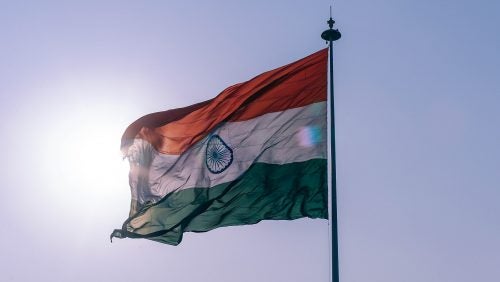Georgetown Law Students Host Panel on India and Kashmir
March 24, 2020 by Editor

By: Gabrielle Metzger
On March 3, 2020, the Georgetown Muslim Law Students Association and the South Asian Law Students Association held a panel entitled “What’s Happening in India and Kashmir?” The panel included Professor Arjun Sethi, Sheena Fazili, Dr. Waris Husain, and Ramya Reddy. This event highlighted and facilitated discussion about rising Hindu nationalism in India and the struggles faced by those living in Kashmir related to Hindu nationalism.
A detail the panel highlighted was how Hinduism is used as a vehicle for political purposes within India. Although roughly 80% of those living in India identify as Hindu, the panelists discussed how nationalist sentiment capitalizes on feelings of marginalization experienced by Hindus in India. These feelings are both facilitated and encouraged by the re-election and political actions of Narendra Damodardas Modi, India’s current Prime Minister, who is seen by many as a pro-Hindu nationalist, populist figure. The panelists pointed out that India’s nationalist progression, based on feelings of marginalization in a majority religious group, is not a phenomenon unique to India. In fact, this trend can also be observed in countries like the United States where Evangelical Christians, as a voting bloc, express many of the same sentiments.
The panelists also discussed the constitutional concerns of recent Indian political events, including India’s recent passage of the Citizenship Amendment Bill, which has led to widespread protests in India. This bill allows individuals from many ethnic groups, who have migrated from select countries and are now living in India, to become naturalized citizens. But the bill specifically excludes Muslims as a group from this citizenship benefit. Although the bill was championed by Prime Minister Modi and Hindu nationalists, legal scholars both within and outside of India have examined the potential unconstitutionality of this new law. They point specifically to Article 14 of the Indian constitution, which guarantees equal protection for all, and Article 15, which prohibits discrimination on the basis of religion. Because the Citizenship Amendment Bill denies the new naturalization privilege to Muslim citizens on the basis of their religion, many consider the law blatantly unconstitutional.
Also discussed was the situation of Kashmir in relation to India’s recent nationalist actions. Kashmir, a predominantly Muslim region, was annexed by India in August of 2019, ending around seventy years of semi-autonomous status. Following the annexation, those living in Kashmir have been subject to internet and phone blackouts as well as a greatly increased Indian police presence. This annexation required a change to the Indian constitution, which was propelled forward by Prime Minister Modi.
The future of India and Kashmir is still malleable. New international concerns, especially the spread of the novel coronavirus, COVID-19, impact protesters and nationalists as well as Muslims and Hindus alike. This could provide either a path forward or an insurmountable roadblock to peace and respect between groups of people in the region.

